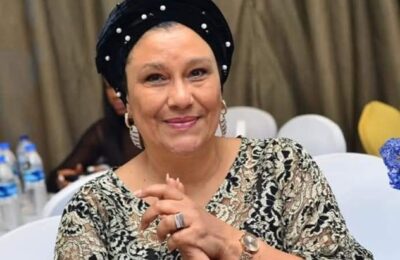“In Nigeria, elections are not counted—they are written.”
It is one of Nigeria’s most painful political jokes, and yet, a terrifying truth: “Elections in Nigeria are written, not counted.” That line, repeated in hushed tones across campuses, compounds, and courtrooms, tells a tale of betrayal—a democracy dying from its own rigged rituals. While the streets chant democracy, the soul of our electoral body, the Independent National Electoral Commission (INEC), lies in shackles—captive to the ruling class, strangled by executive manipulation, and mocked by those who benefit from its lack of autonomy.
Every election cycle comes and goes, but the trauma remains. From the collation centers in Port Harcourt to the tribunals in Abuja, the cry is the same: INEC is not truly independent. What’s the essence of an “independent” commission when its chairman is handpicked by a president who has stakes in the outcome? Where lies the credibility of a body whose budget dances to the music of political puppeteers? When ballots are traded like onions in the market, and voters’ wills are overruled by pre-written results, democracy becomes a well-dressed ghost.
This is no ordinary lament. It is the heartbeat of a wounded nation screaming for deliverance. The world watches, but Nigeria continues its drama. It is why Professor Wole Soyinka once noted that “The man dies in all who keep silent in the face of tyranny.” And tyranny, when clothed in electoral garments, is more dangerous than when it wears a uniform. A compromised INEC is more lethal than a military coup—it cloaks injustice with legality.
In functional democracies, electoral bodies are sacred institutions—shielded from political control, structured to resist executive bullying, and managed by persons of unquestionable integrity. Take Ghana, for instance. Their Electoral Commission (EC) operates with a degree of autonomy that has inspired public trust across political lines. In South Africa, the Independent Electoral Commission (IEC) was established with strong legal frameworks that make interference almost impossible. The United States Federal Election Commission, despite its own internal challenges, doesn’t take orders from the White House. Why then should Nigeria’s INEC remain a parastatal under the presidency?
Political philosopher Montesquieu warned that “There is no liberty if the judiciary is not separated from the legislative and executive.” The same rings true for electoral commissions. There is no true democracy if the body that conducts elections is beholden to the same political class it should regulate. An election umpire must not wear the jersey of any party—it must be neutral, uncompromised, and unbought.
Yet, in Nigeria, elections are now elaborate performances. From ballot box snatching to thuggery sponsored in high places, from vote buying to voter suppression, the Nigerian voter is reduced to a spectator. The 2023 general elections—once hailed as a turning point—left a sour taste in the mouth of millions. The introduction of BVAS and IREV offered hope, but the process collapsed under pressure. “We have been raped in broad daylight,” lamented one voter in Lagos. And who was the rapist? A compromised system.
We must not mistake silence for acceptance. The youth know. The elders sigh. Even the judiciary, often forced to legitimize what it cannot change, groans in secret. And the international community? They send congratulatory messages but do not hide their disappointment. Democracy is not just the casting of votes; it is the counting, the integrity, and the fairness of it. Without these, elections are mere rituals.
The call for reform is not new. Electoral experts, civil society groups, and concerned patriots have for years demanded that INEC be granted full independence—financial, administrative, and operational. The chairman should not be appointed by the President. The commission’s funding should be charged directly to the Consolidated Revenue Fund, like the judiciary. Appointments must be bipartisan, transparent, and rooted in merit, not loyalty. Anything short of this is deception.
As Frantz Fanon once said, “Each generation must, out of relative obscurity, discover its mission, fulfill it or betray it.” This generation’s mission is to rescue Nigeria’s democracy from cosmetic freedom. INEC must be structurally divorced from the executive. Not just renamed. Not just repainted. Rebuilt. Renewed. Released from bondage.
And let’s be clear: the independence of INEC is not about creating more political parties. Nigeria already boasts over 80 registered parties, most of them existing only on paper. What we need is not quantity but quality—quality of process, quality of outcome, quality of leadership. A credible electoral body is the bedrock of national transformation. No nation develops when its elections are fiction.
To continue ignoring this rottenness is to fuel apathy. That’s why voter turnout continues to drop. That’s why young people, disillusioned by the last elections, now mock the process. “Why vote when they already know who will win?” they ask. And who can blame them?
It is time for a new dawn. A dawn where elections are not stolen in silence. A dawn where INEC’s logo commands respect, not ridicule. A dawn where political contenders fight fair, knowing that the referee is not bought.
We do not ask for perfection, only for justice. We do not demand angels, only accountability. And we will not stop until the name INEC becomes synonymous with integrity, not infamy.
Democracy is not a gift. It is a fight. And Nigeria must fight for it. INEC must be set free—not tomorrow, but today. Because until the umpire is clean, the game will forever be dirty.
– Inah Boniface Ocholi writes from Ayah – Igalamela/Odolu LGA, Kogi state.
08152094428 (SMS Only)



